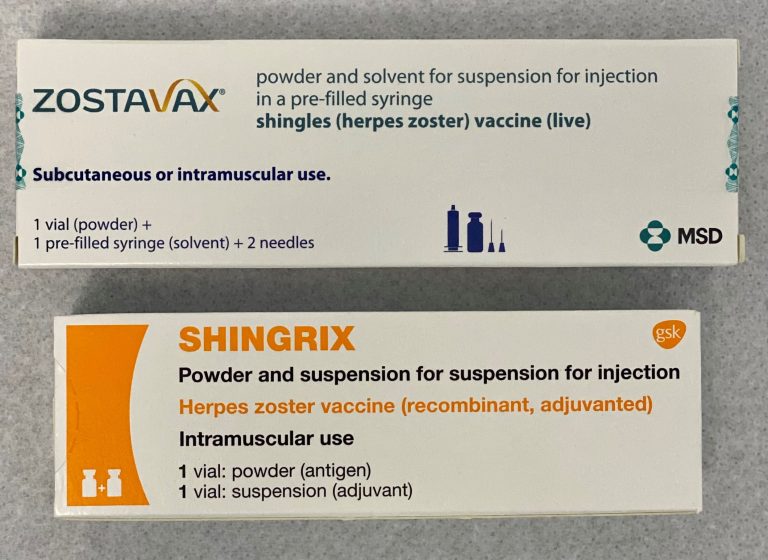GSK plc (LON/NYSE: GSK) has announced that the China National Medical Products Administration has approved Nucala (mepolizumab) as an add-on maintenance treatment for severe eosinophilic asthma in adults and adolescents aged 12 years and older. Nucala is the first anti-Interleukin-5 (IL-5) targeting treatment approved for use in China for adult and adolescent patients with this condition.
· Mepolizumab is the first targeted anti-Interleukin-5 (IL-5) biologic available in China as an add-on maintenance treatment for severe eosinophilic asthma
· Asthma is a major health priority in China with millions affected by severe disease
· Approval based on a separate phase III trial among Chinese patients reinforcing mepolizumab’s efficacy and safety data
Asthma is a major health burden in China affecting an estimated 46 million adults.1 Of those, approximately 6% experience severe asthma, which confers the most substantial impact on daily living, is associated with an increased risk of exacerbations requiring hospitalisation, and higher likelihood of potentially fatal asthma attacks.1-5 In China, 15.5% of people with asthma have experienced an exacerbation requiring a hospital visit in the preceding 12 months.1
Kaivan Khavandi, Senior Vice President, Global Head, Respiratory and Immunology, R&D, said: “We are delighted with this approval, supported by evidence in a Chinese population. Millions of people in China with severe eosinophilic asthma can now potentially benefit from the advance in management that Nucala could offer – a testament to GSK’s ongoing commitment to redefine respiratory disease management globally.”
Guidelines for bronchial asthma prevention and management (2020 edition) from the Asthma group of the Chinese Thoracic Society reference the current unmet need among Chinese patients with this condition.6 The guidelines also reference evidence for targeted biologic therapy that could reduce exacerbations, emergency or hospitalisation rates, oral corticosteroid use, and also improve asthma control and lung function.6
The approval for use in severe asthma is based on positive data from a separate phase III trial among Chinese patients.7,8 The results from the Chinese study reinforce existing data for mepolizumab in patients with severe asthma.8-13 Adverse events were consistent with the known safety profile for mepolizumab with no new emerging safety issues specific to Chinese patients. 8-13 The global clinical development programme included four key clinical trials – DREAM9, MENSA10, SIRIUS11 and MUSCA.12 These trials established the efficacy and safety profile of mepolizumab in patients with severe asthma with an eosinophilic phenotype with safety data coming from pivotal, long-term and real-world studies.9-14
The 52-week phase III trial in Chinese patients with severe asthma studied the effect of mepolizumab relative to placebo, as add-on on the primary endpoint of reduction in the annual rate of clinically significant exacerbations (CSE).7,8 Patients in the trial who received mepolizumab compared to those who received placebo experienced 65% fewer CSE’s (0.45 vs.1.31 events/year, HR [95% CI]: 0.35 [0.24, 0.50] p<0.001), had a 70% reduction in the frequency of CSE per year requiring hospitalisation or Emergency Department (ED) visits (RR [95% CI] 0.30 [0.12,0.77]; p=0.012), and a significantly increased period of time before patients experienced the first CSE requiring hospitalisation or ED visits (3.4% vs. 12.6%; HR [95% CI]: 0.26 [0.10, 0.69]; p=0.007).8
This is the second indication for mepolizumab in China, with approval for use in adults with eosinophilic granulomatosis with polyangiitis (EGPA) received in 2021. Epidemiological, clinical and pathophysiological studies show that patients with EGPA usually also have asthma, which is often severe.15
About Nucala (mepolizumab)
First approved in 2015 for severe asthma with an eosinophilic phenotype in the US, Nucala is the first-in-class monoclonal antibody to target IL-5.16,17 Mepolizumab as the first anti-IL-5 targeting biologic approved in China is an important medical advance in the management of asthma. IL-5 is an inflammatory signalling molecule that is central to the development, maturation and activation of eosinophils, a type of white blood cell implicated in the pathogenesis in the majority of cases of severe asthma.18 Evolving evidence suggests IL-5 has an impact on other cell types beyond eosinophils, leading to epithelial barrier dysfunction, airways remodelling and disease progression.19-25 Mepolizumab binds directly to and inhibits IL-5 molecules.16,17
Nucala is currently approved in China for use in adults with EGPA and was included on the National Reimbursement Drug List in January 2023. Nucala has been studied in over 4,000 patients in 41 clinical trials across several IL-5 mediated conditions and was the first treatment approved in the US and Europe, across four IL-5 medicated conditions: severe asthma with an eosinophilic phenotype, EGPA, hypereosinophilic syndrome and chronic rhinosinusitis with nasal polyps.16,17 Nucala has been approved in the US, the European Union and over 25 other markets as an add-on maintenance treatment for patients with severe asthma.
For product and important safety information please consult the country relevant summary of product characteristics.
EU and UK available at: https://www.ema.europa.eu/en/documents/product-information/nucala-epar-product-information_en.pdf
US available at: http://www.accessdata.fda.gov/drugsatfda_docs/label/2019/761122s000lbl.pdf
References
1. Huang K, Yang T, Xu J, et al. Prevalence, risk factors, and management of asthma in China: a national cross-sectional study. Lancet. 2019; 394:407-418.
2. Ding B, Small M, Wang W, et al. The disease burden of mild asthmatics in China. European Respiratory Journal. 2016; 48 (suppl 60): PA4208
3. National Heart, Lung, and Blood Institute. Guidelines for the Diagnosis and Management of Asthma (EPR-3). [Online]. Available at: https://www.nhlbi.nih.gov/health-topics/guidelines-for-diagnosis-management-of-asthma. [Accessed January 2024.]
4. Ambrosino, N and Paggiaro, P. The management of asthma and chronic obstructive pulmonary disease: current status and future perspectives. Expert Rev Respir Med. 2012;6(1):117-127.
5. Antonicelli, L, Bucca C, Neri M, et al. Asthma severity and medical resource utilisation. Eur Respir J. 2004;23(5):723-729.
6. A Safety and Efficacy Study of Mepolizumab in Subjects With Severe Asthma (NCT03562195) available at A Safety and Efficacy Study of Mepolizumab in Subjects With Severe Asthma – Full Text View – ClinicalTrials.gov last accessed December 2023.
7. Asthma Group of the Chinese Thoracis Society. Guidelines for bronchial asthma prevent and management(2020 edition) Asthma group of Chinese Throacic Society Asthma Group, Chinese Society of Respiratory Diseases. Guidelines for the prevention and treatment of bronchial asthma (2020 edition)[J]. Chinese Journal of Tuberculosis and Respiration,2020,43(12):1023-1048. Available at: https://rs.yiigle.com/cmaid/1302286 last accessed December 2023. (China Asthma Guideline 2020 支气管哮喘防治指南(2020年版). 中华结核和呼吸杂志, 43(12), 26.)
8. Chen R, Wei L, Dai Y, et al. Efficacy and Safety of Mepolizumab as an Add-On Therapy in Chinese Patients With Severe Eosinophilic Asthma: A Randomized, Double-Blind, Parallel Group Phase 3 Study. Poster P620 presented at Presented at the American Thoracic Society Meeting, Washington, DC, May 19-24, 2023. Available at: https://presentations.gsk.com/wp-content/uploads/2023/03/ATS_QR14_Chen.pdf last accessed December 2023.
9. Pavord ID, Korn S, Howarth P, et al. Mepolizumab for severe eosinophilic asthma (DREAM): a multicentre, double-blind, placebo-controlled trial. Lancet. 2012;380(9842):651-659.
10. Ortega, HG, Liu MC, Pavord ID, et al. Mepolizumab Treatment in Patients with Severe Eosinophilic Asthma. N Engl J Med. 2014;371(13):1198-1207.
11. Bell, EH, Wenzel SE, Thompson PJ, et al. Oral Glucocorticoid-Sparing Effect of Mepolizumab in Eosinophilic Asthma. N Engl J Med. 2014;371(130:1189-1197.
12. Chupp GL, Bradford ES, Albers FC, et al. Efficacy of mepolizumab add-on therapy on health-related quality of life and markers of asthma control in severe eosinophilic asthma (MUSCA): a randomised, double-blind, placebo-controlled, parallel group, multicentre, phase 3b trial. Lancet Respir Med. 2017;5(5):390-400.
13. Flood-Page P, Swenson C, Faiferman I, et al. A study to evaluate safety and efficacy of mepolizumab in patients with moderate persistent asthma. Am J Respir Crit Care Med. 2007;176(11):1062-1071.
14. Unpublished abstract – GSK data on file (Pavord, et al. Abstract 201956 presented at ERS 2023).
15. Porsbjerg C, Menzies-Gow A. Co-morbidities in severe asthma: Clinical impact and management. Respirology. 2017;22(4):651-661. doi:10.1111/resp.13026
16. U.S. Food and Drug Administration. Nucala Full Prescribing Information. Available at: http://www.accessdata.fda.gov/drugsatfda_docs/label/2019/761122s000lbl.pdf. Last accessed December 2023
17. European summary of product characteristics available at https://www.ema.europa.eu/en/documents/product-information/nucala-epar-product-information_en.pdf last accessed February 2023
18. Maspero J, Adir Y, Al-Ahmad M, et al. Type 2 inflammation in asthma and other airway diseases. ERJ Open Res. 2022;8(3):00576-2021.
19. Buchheit KM, Dwyer DF, Ordovas-Montanes J, et al. IL-5Rα marks nasal polyp IgG4- and IgE-expressing cells in aspirin-exacerbated respiratory disease. J Allergy Clin Immunol. 2020;145(6):1574-1584.
20. Buchheit KM, Lewis E, Gakpo D, et al. Mepolizumab targets multiple immune cells in aspirin-exacerbated respiratory disease. J Allergy Clin Immunol. 2021;148(2):574-584.
21. Bajbouj K, AbuJabal R, Sahnoon L, et al. IL-5 receptor expression in lung fibroblasts: Potential role in airway remodeling in asthma. Allergy. 2023;78(3):882-885.
22. Barretto KT, Brockman-Schneider RA, Kuipers I, et al. Human airway epithelial cells express a functional IL-5 receptor. Allergy. 2020;75(8):2127-2130.
23. Varricchi G, Ferri S, Pepys J, et al. Biologics and airway remodeling in severe asthma. Allergy. 2022;77(12):3538-3552.
24. Santini G, Mores N, Malerba M, et al. Dupilumab for the treatment of asthma. Expert Opin Investig Drugs. 2017;26(3);357-366.
25. Israel E and Reddel HK. Severe and Difficult-to-Treat Asthma in Adults. N Engl J Med. 2017;377(10):965-976.
26. Heaney LG, Perez de Llano L, Al-Ahmad M, et al. Eosinophilic and Noneosinophilic Asthma: An Expert Consensus Framework to Characterize Phenotypes in a Global Real-Life Severe Asthma Cohort. Chest. 2021;160(3):814-830.








































